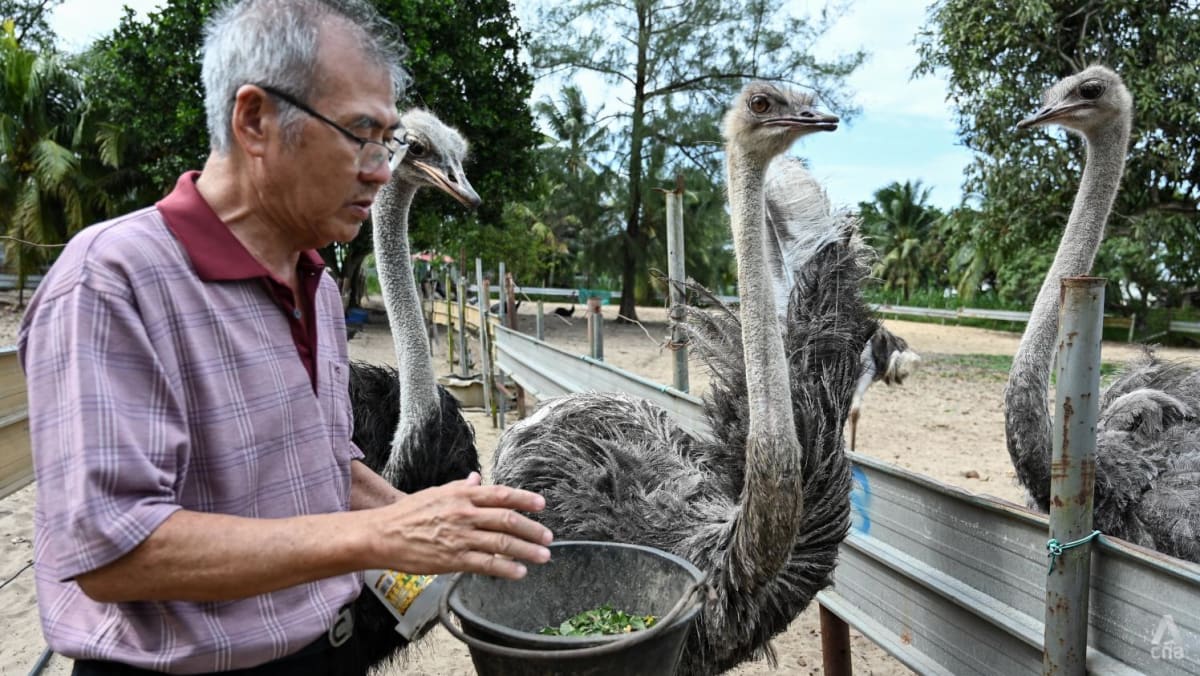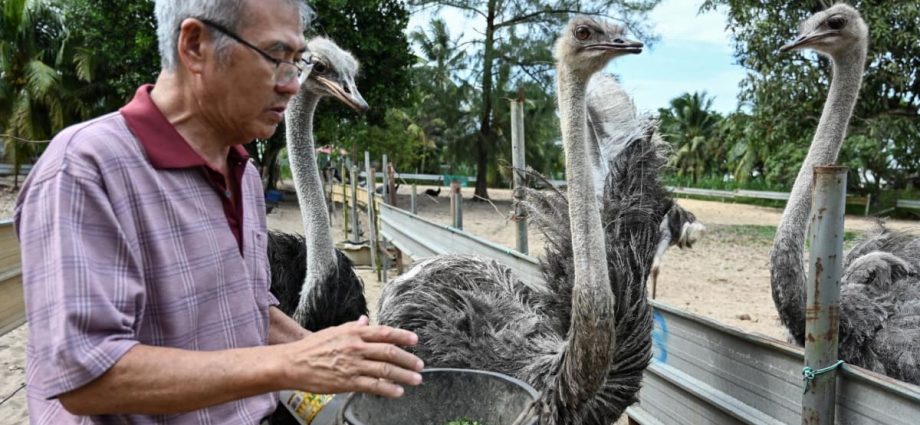
PENGERANG, Johor: As Colin Teh walked across a sandy paddock of the Desaru Ostrich Farm, one of the dozens of flightless, shaggy-feathered birds he owns wandered over and nipped at his collar.
The 70-year-old farmer barely winced. Teh stroked its feathers gently and held out his hand. The 2.5m tall ostrich, with its elongated neck, then pecked its beak furiously at his bare fingers.
“When they peck the fingers, it’s a sign of affection – not aggression. It’s a sign they accept you as a friend,” said the Singaporean.
“It doesn’t hurt at all. They are very adorable creatures,” added Teh.
Teh’s special bond with his ostriches goes back for years. He has been rearing African black-necked ostriches since 1995.
Today, the Desaru Ostrich Farm, which is located in Pengerang, Johor, is one of the largest in Malaysia. It is also popular among Singaporean tourists who visit Johor on day trips and short vacations.
In a recent interview with CNA at his farm, Teh looked back on his career and how he had to make some sacrifices to keep the business going over the last 28 years.
In spite of the hardships he encountered, especially during the COVID-19 pandemic, Teh said he is glad he made the decision to pursue his passion.
QUITTING FLYING FOR FARMING
Teh’s journey as a farmer began as a gamble.
In the 80s, Teh graduated as a military pilot with the Republic of Singapore Air Force. He was posted early on as an instructor to train pilot cadets.
“I did not fit into the organisation and it was not long before I decided to quit flying,” said Teh, who resigned from the RSAF in 1994.
“I decided to do something which I have passion in – which is farming,” he added.
He acknowledged that he was leaving a career many considered to be lucrative and an “iron rice bowl”. However, Teh was adamant that he would switch his pilot uniform for farming overalls.
On a trip to South Africa in 1995, he visited an ostrich farm and developed an affinity with the large flightless birds.
He figured that rearing ostriches could also be profitable given that they were easy to breed.

